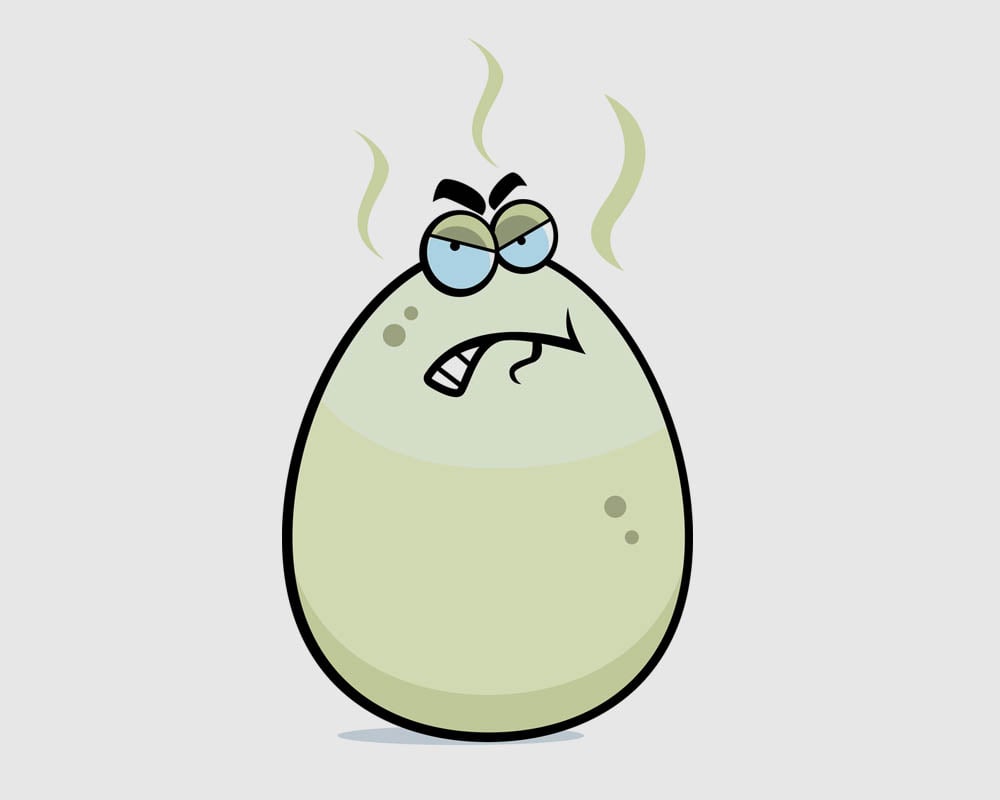Learn about the sources of well water odors and how to prevent them


Water containing hydrogen sulfide gas (“H2S”), has a distinctive “rotten egg” odor, which may be especially noticeable when running hot water.
Such water can discolor coffee, tea, and other beverages, and alter the appearance and taste of cooked foods. Hydrogen sulfide (“H2S”) gas is a nuisance that is not usually a health risk at concentrations normally found in household water.
Hydrogen sulfide can be toxic. Usually, the gas can be detected long before it reaches harmful concentrations.
H2S is flammable and poisonous. While such concentrations are not common, if gases are released in a confined area, they could cause nausea, illness, and in extreme cases, death.
H2S dissolved in water can corrode plumbing metals, such as iron, steel, copper, and brass and exposed metal parts in washing machines and other water-using appliances.
The corrosion of iron and steel from hydrogen sulfide forms ferrous sulfide or “black water” which can darken silverware and discolor copper and brass utensils. Hydrogen sulfide can also interfere with the effectiveness of water softeners and filter systems.
Sources of Odors
Iron bacteria and sulfur bacteria present in groundwater use iron and sulfur as an energy source and chemically change sulfates to produce H2S gas.
These bacteria use the sulfur available from decaying plants, rocks, or soil and often thrive in an iron-rich environment.
The harmless non-toxic bacteria normally exist in oxygen-deficient environments, such as deep wells and plumbing systems.
The bacteria do not usually cause health problems, but contribute to bad tastes and/or odors at low levels.
The First Step is To Check For Odors in Cold & Hot Water
Run a hose bib or tap as close to the well as possible and fill a 5- gallon bucket or other container and notice if there are odors. If you smell a “rotten egg” odor, this is hydrogen sulfide gas.
If the water smells like oil or asphalt this can be from manganese. If the water smells like cucumber or sewage this is usually a result of iron and/ or sulfur bacteria.
Learn about the sources of well water odors and how to prevent them
Run the water hot water from each tap and notice if there is an odor in the hot water, that is not in the cold water. This indicates a problem with the water heater. Iron and sulfur bacteria can interact with the anode rod in water heaters, resulting in hydrogen sulfide gas only in the hot water.
Changing the anode rod to an aluminum-zinc rod can often solve this problem. It is recommended that you drain your water heater at least once per year.
This will flush out sediment that may accumulate in the bottom and give you an idea of the sediment type and color, if any, are present.
To learn more about odors and what may be causing them, visit our Odors page, or read our guide on “How To Treat Sulfur Odors In Well Water”.
If you have questions, don’t hesitate to e-mail us at support@cleanwaterstore.com, leave us a message on Facebook, or use our online contact form for prompt, personalized assistance from our trained professionals. Thanks for reading!
Thanks for reading!
Recent Posts
Water Quality for Horses and Livestock: A Guide to Healthier Barns and Pastures
Clean water is the cornerstone of animal health and productivity. Whether you're raising horses, cattle,…
Clean Drinking Water for Cats: What Every Cat Owner Should Know
Why Clean Drinking Water Matters for Cats Hydration is critical to a cat’s overall health,…
Pet Hydration: What to Know About Water Safety
Clean Drinking Water for Dogs: What Every Dog Owner Should Know Clean drinking water is…
How to Ensure Fresh, Safe Water for Your Birds: Daily Care Tips for Bird Owners
Why Filtered Water for Birds Is Essential for Their Health Like food, clean drinking water…
U.S. Water Problems by Region: Common Contaminants & Solutions
Curious about U.S. water problems by region? Water quality isn’t just a national issue—it’s a…
Wildfire Water Contamination: How to Ensure Safe Water After a Fire
Wildfire Water Contamination: What You Need to Know After the Fires Drinking water contamination is…


